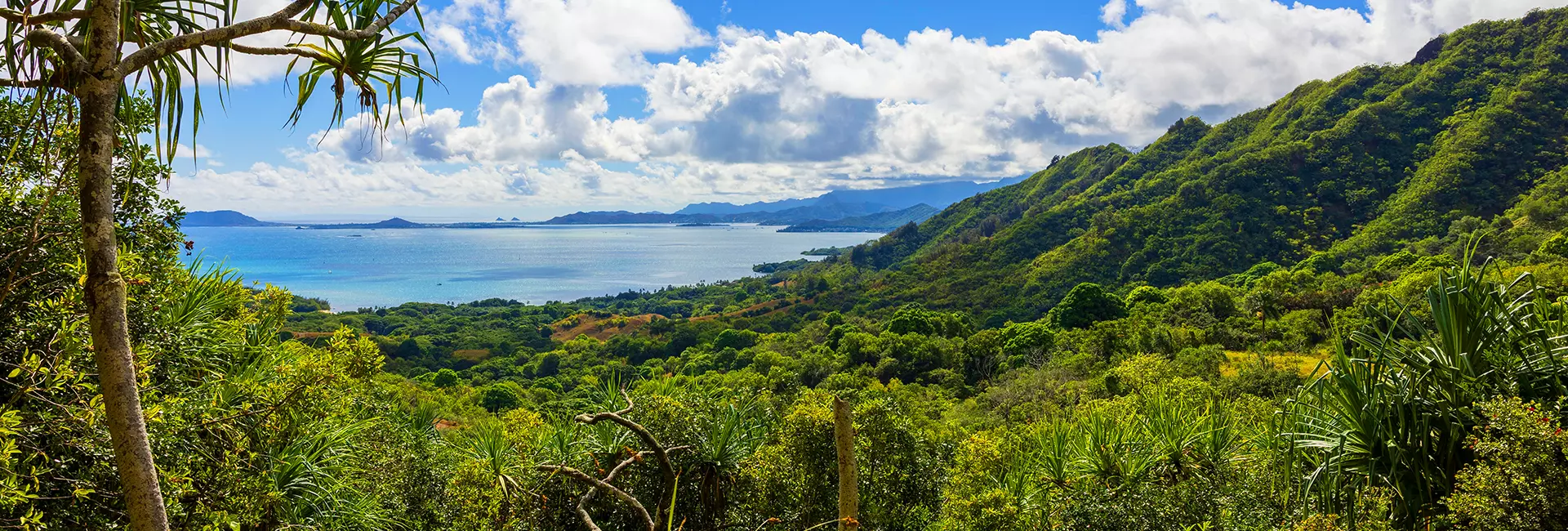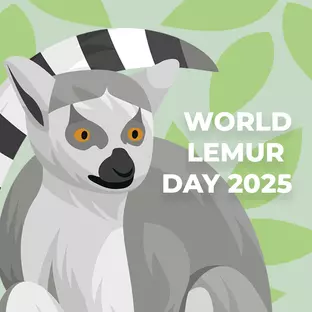
Madagascar
Volunteer in Madagascar
Step into a world where wide-eyed lemurs leap through the treetops, half of the world’s chameleon species shift colours before your eyes, and ancient, symbolic baobab trees line the horizon. When you volunteer in Madagascar, you open the door to one of the planet’s most extraordinary wildlife experiences, encircled by thousands of species found nowhere else on Earth.
Yet, all this natural wonder is under threat. Rapid habitat loss and deforestation are putting immense pressure on Madagascar’s unique species, with many now critically endangered. Wildlife conservation in Madagascar has never been more urgent.
As a volunteer in Madagascar, you can help protect this incredible biodiversity by contributing directly to conservation research and fieldwork. Assist with wildlife monitoring, collect valuable data, support habitat surveys, and help track lemur behaviour in the wild. When you volunteer here, you don't just visit the land; you become part of its extraordinary story.
If you’re ready to make a real impact in wildlife and lemur conservation, contribute to critical scientific studies, and experience life on a breathtaking island, why wait? - Move it, move it!
Projects Do More
13 - 27 Nights from $1,614.00 $1,452.00
Step into a real-world conservation adventure. The Lemur Research Project in Madagascar offers volunteers the opportunity to work alongside experts in protecting critically endangered wildlife and the forests they call home.
View projectOn the Blog

Wildlife
Madagascar is one of the world’s most remarkable wildlife destinations, home to an incredible array of species found nowhere else on Earth. Over 90% of its wildlife is endemic, making Madagascar a true biodiversity hotspot. From 112 species of lemurs, chameleons, fossa, tomato frogs, Tenrecs and more, the island’s unique animals continue to fascinate scientists and nature lovers. Madagascar’s rich rainforests, dry forests, and coastal ecosystems provide vital habitats for countless rare species of birds, reptiles, and plants. Sadly, this extraordinary wildlife is under serious threat from deforestation, slash-and-burn agriculture, and rapid habitat loss. Many species, especially lemurs, are now critically endangered. Wildlife conservation in Madagascar is essential to protect these fragile ecosystems and ensure the survival of the island’s iconic species for future generations.

Culture
Shaped over centuries by travellers, traders, and settlers from Africa, Asia, and Europe, Madagascar's traditions have grown into something entirely their own. Across the island, you’ll find a deep respect for family, community, nature, and tradition, which embodies 'fihavanana,' a Malagasy concept of kinship, friendship, and goodwill. Colours burst from the stalls, food, landscapes, and even the eyes staring back at you in the forest. When you volunteer in Madagascar, you don’t just contribute to wildlife conservation; you’re welcomed into the rhythm of daily life. You’ll share meals, stories, and moments with local people, gaining rare insight into their deep bond with the land and each other. From fragrant food stalls serving zebu brochettes to bustling markets brimming with tropical fruits, Madagascar’s culture invites you to not just witness it, but to truly live it.

Popular Sights
Madagascar is a land of spectacular sights, boasting iconic attractions like the Avenue of the Baobabs, where ancient, towering trees line a dusty road like natural monuments, great for an amazing sunset walk. For those seeking unique wildlife encounters, Andasibe-Mantadia National Park is a must-visit, offering the chance to spot more of the famous indri, the largest living lemur, as its haunting calls echo through the rainforest. Along the coast, Nosy Be enchants visitors with its crystal-clear waters, lively coral reefs, and laid-back island atmosphere, perfect for snorkelling and diving. The otherworldly stone forests of Tsingy de Bemaraha, a UNESCO World Heritage Site, present a maze of sharp limestone pinnacles, hanging bridges, and rare species that are hidden among the rocks. Volunteer in Madagascar, and weave these incredible sights into your conservation adventure for the trip of a lifetime.
Destination Information
Safety for Volunteers in Madagascar
Madagascar is generally safe for volunteers, especially those involved in organised programs with reputable companies. Volunteers often work in rural or semi-rural areas where communities are welcoming. However, basic precautions are necessary, such as avoiding walking alone at night, securing valuables, staying informed about local conditions, and being aware of potential health risks, including malaria. Vaccinations and anti-malarial medication are recommended.
Safety for Solo Female Travellers
It is generally safe for solo female travellers to visit Madagascar, though it is advised to dress modestly, avoid walking alone at night, and use trusted transportation. Petty crime and harassment can happen, especially in cities.
Safety for LGBTQ Tourists
Homosexuality is legal, but Madagascar is socially conservative. Any public display of affection, no matter your sexuality, should be avoided.
For stays up to 90 days, volunteers can usually enter on a tourist visa, which is available as a visa on arrival or via e-Visa, with fees depending on the length of stay (typically £30–50). Most short-term volunteer projects are covered under tourist visas, and immigration generally accepts "tourism" as the reason for entry.
For stays longer than 90 days, you must apply for a special extendable visa at a Malagasy embassy before travelling and convert it to a long-stay visa once in Madagascar.
In all cases, ensure your passport is valid for at least six months after entry, has at least two blank pages, and that you have proof of onward travel and sufficient funds.
By joining a Madagascar volunteer project, you can contribute to long-term wildlife conservation efforts, protect habitats, improve educational outcomes, support local initiatives, and empower communities. Sustainable volunteering focuses on creating lasting positive effects rather than short-term solutions!





